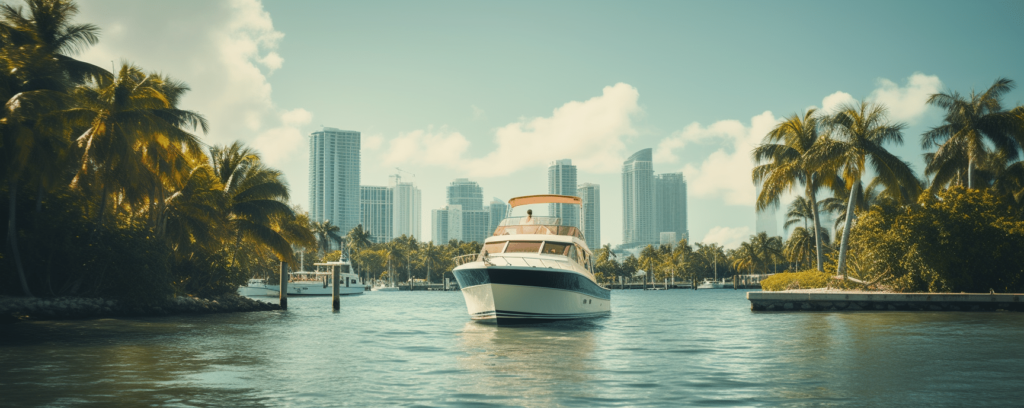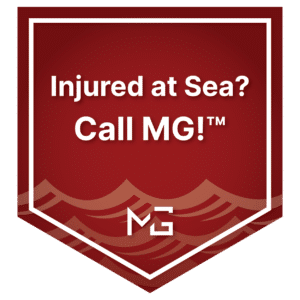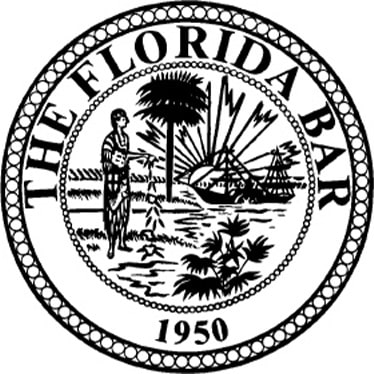
Safety first: if you are involved in a boating accident what is the first thing you must do? Prioritizing the well-being of all passengers is the immediate necessity. This guide eliminates the guesswork, outlining the essential steps to secure safety and adhere to legal obligations, preparing you for what’s included in the rest of the article.
Key Takeaways
- Ensure the safety of all aboard following a boating accident by checking for injuries, stopping the vessel, and signaling for help if conditions are severe.
- Report the boating accident to authorities within the required timeframe, document the incident thoroughly for legal and insurance purposes, and exchange detailed information with other involved parties.
- After addressing immediate safety and legal obligations, seek medical attention, notify your insurance company, consult a maritime attorney, and implement regular safety drills and equipment checks to prevent future accidents.
Contact us today for your free & confidential case review. Our team will help you get the compensation that you deserve.
 Immediate Actions Post-Accident
Immediate Actions Post-Accident
In the unfortunate event of a boating accident, the first few minutes can be chaotic and frightening. Keeping your composure is paramount, as clear, rational decision-making can be life-saving. The immediate steps post-accident revolve around ensuring personal safety, stopping the vessel, and signaling for help if necessary.
Ensure Personal Safety First
In case of an accident, the foremost concern should be the safety of all those on board. This begins with a swift check for any injuries, and if anyone has experienced a fall overboard or is in the process of falling overboard. In the latter case, deploying a buoy or flotation device can be a lifesaver. Keep in mind, donning a life jacket isn’t merely advisable—it’s a vital safety measure that substantially enhances survival odds if one experiences a man overboard situation.
It’s also important to perform a head count to make sure everyone is accounted for. Should anyone be missing or injured, immediate professional help becomes vital, particularly in cold water where hypothermia is a rapid risk due to the loss of body heat.
Stop The Vessel and Assess the Situation
After securing everyone’s immediate safety on the small boat, the subsequent action should be to stop the vessel immediately. Stopping the boat can prevent further damage or injury, particularly in rough seas. Once the vessel is stationary, you can carry out a more detailed assessment of the situation.
This involves:
- Checking for any damage to the boat and determining the severity of the situation
- Keeping your vessel away from the trajectory of other boats to prevent additional mishaps
- Conducting a thorough headcount to verify that every crew member is accounted for
Signal For Help If Necessary
Under certain circumstances, signaling for assistance might be required. If your vessel is seriously damaged, if anyone is injured, or if the weather conditions are deteriorating, you should immediately send out a distress signal. This can be done through VHF radio, flares, or any other available communication devices.
Keep in mind, during a distress situation, time is of the essence. Therefore, knowing how to properly signal for help and when to do it can significantly increase your chances of being rescued promptly.
Legal Obligations After a Boating Accident
Boating accidents are not only a matter of personal safety but also of legal responsibility. Boat operators are obligated to report accidents to the authorities and document the incident for legal records. Depending on the severity of the accident, failing to fulfill these obligations can lead to serious penalties.
Reporting to Authorities
Reporting the incident to the authorities is one of the crucial duties following a boating accident. This should be done within a specific timeframe, usually within 10 to 15 days after the accident. However, if there are fatalities or missing persons, immediate notification is required.
When reporting the accident, it’s important to provide specific details such as:
- The names, types, and ownership of the vessels involved
- A description of the accident
- Conditions at the time
- Any damage or injuries
Documenting the Incident for Records
Besides notifying the authorities about the accident, documenting the incident for your personal records is also of utmost importance. This can be useful later for legal, insurance, and investigative purposes.
You should thoroughly document the incident, capturing as many relevant details as possible. This includes taking photographs of the accident scene, the damage to the vessels, and any injuries. It’s also beneficial to create a written account of the event while the details are still fresh in your mind.
Contact us today for your free & confidential case review. Our team will help you get the compensation that you deserve.
Gathering Essential Information
Once you’ve ensured everyone’s safety and fulfilled your legal obligations, the next step is to gather essential information related to the accident. This involves exchanging information with other parties involved and collecting evidence and witness statements.
Exchange Information with Other Parties Involved
While sharing details with other parties involved in the accident, precision and thoroughness are key. This information will be critical for any legal or insurance claims that may arise from the accident.
The specific details typically exchanged include:
- Names
- Addresses
- Contact details
- Vessel identification
- Insurance company names and policy numbers of all parties involved
Ensure that this information is correct, as any discrepancies can complicate matters later on.
Collect Evidence and Witness Statements
Alongside information exchange, gathering as much evidence as feasible is also critical. This can include:
- Photographs of the accident scene
- Photographs of damages and injuries
- Any other pertinent details that could support your case in a potential legal or insurance claim.
Witness statements can also be invaluable in establishing the facts of the accident. When gathering these statements, make sure to document the sequence of events leading to the accident and the resulting injuries, as well as any other relevant details.
Post-Accident Procedures
After a boating accident, there are important procedures you should follow. These include seeking medical attention, contacting your insurance company, and consulting with a maritime attorney. Each of these steps plays a crucial role in ensuring your well-being and protecting your interests.
Seek Medical Attention
Regardless of how you feel post-accident, seeking medical attention is crucial. Certain injuries may not manifest immediate symptoms, and seemingly minor symptoms could later indicate a serious condition.
It’s also important to provide all the necessary information to medical professionals. This includes your contact information, insurance details, and a completed Boating Accident Report if required within 48 hours.
Contact Your Insurance Company
Reaching out to your insurance company is another key step following a boating accident. You should notify them as soon as possible about the incident and provide them with all the necessary documentation and information.
Remember, failing to report the accident to your insurance company could result in a denial of compensation for injuries or property damage. It can also lead to potential legal consequences, including fines and possible imprisonment.
Consult With a Maritime Attorney
As a final step, it is recommended to seek advice from a maritime attorney. These legal professionals specialize in maritime law and can provide valuable advice and guidance following a boating accident.
A maritime attorney can:
- Help you understand your rights
- Guide you through the legal process
- Represent you in any potential legal proceedings
- Liaise with insurance companies on your behalf, which can be particularly useful if you’re dealing with complex claims or disputes.
Preventative Measures and Safety Tips
Despite the importance of preparation for potential boating accidents, taking preventive measures holds even greater significance. This involves conducting regular safety drills and equipment checks, as well as maintaining navigational awareness and taking weather precautions.
Regular Safety Drills and Equipment Checks
Conducting safety drills on a regular basis is a cornerstone of boating safety, and even the coast guard emphasizes their importance. They prepare the crew to respond effectively and quickly in the event of an emergency, which can significantly reduce the potential harm and damage caused by an accident.
Equipment checks carried out regularly hold equal importance. It’s important to regularly inspect all safety equipment, including:
- Life jackets
- Fire extinguishers
- Distress signals
- Navigation lights
to ensure they’re in good working condition and ready for use in an emergency.
Navigational Awareness and Weather Precautions
Being aware of navigation is another crucial component of boating safety, especially when it comes to small boats. This involves understanding the rules of the road, maintaining situational awareness, and having a good knowledge of your boat’s equipment and systems. It’s important not to lose sight of these aspects while enjoying your time on the water.
It’s also important to monitor the weather conditions while you’re out on the water. A sudden change in weather can turn a relaxing boat ride into a dangerous situation. Always check the weather forecast before you set sail and be prepared to adjust your plans if necessary.
Last updated Wednesday, September 18th, 2024











